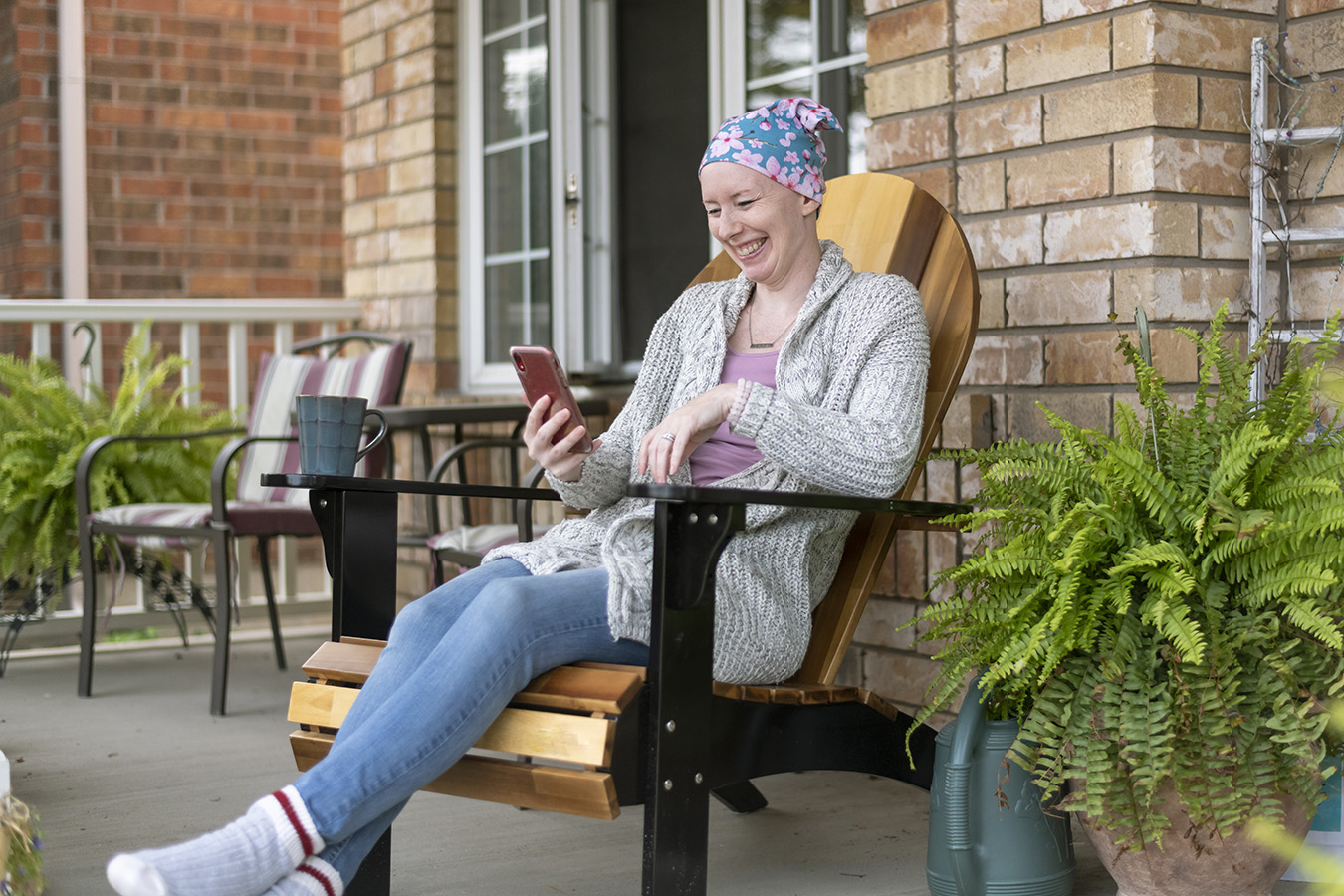What is it Like to Live with Advanced Cancer?

Getting a cancer diagnosis is a frightening experience for a person and their loved ones. The prognosis can vary widely based on the cancer type, severity, and how far it has spread, which is identified with a “stage” designation, according to the American Cancer Society.
Stage 4 cancer, also called advanced cancer, typically refers to cancer that has spread beyond its original site to other body organs and tissues. Stage 4 cancers can be harder to treat, and the survival rates over several years are often low.
What is palliative care?
By working closely with a palliative medicine specialist, people with stage 4 cancer still have opportunities to enjoy life in the months or years ahead.
In palliative medicine, specialists focus on helping patients with a serious illness live as well and as long as they can, according to the American Cancer Society. Experts find the right treatments to help patients reach their goals without unnecessary side effects from treatments.
Palliative care is not the same as hospice care, says Mariana Khawand-Azoulai, M.D., a palliative medicine specialist with the University of Miami Health System. “We are extremely helpful at the end of life, but we also push for ‘upstream’ palliative care,” she says. “If we can start working with patients earlier on in their cancer journey, we can be much more effective at helping them achieve their goals and live their best lives.” Palliative care teams also collaborate closely with other members of your health care team, like oncologists, psychologists, and other clinicians.
A customized approach to care
Dr. Khawand-Azoulai says that there is still a lot of good life to be lived, even with a stage 4 cancer diagnosis. This, of course, will vary based on the severity of the cancer and the person’s wants and needs, but the goal of palliative care is to get the person the right treatments and support to help them in these efforts.
“If treatments are becoming burdensome or causing a lot of side effects or suffering, a palliative care team can really help with guiding medical decision-making,” she says. “They can find out what matters most and approach them with a holistic approach. We address not only the medical needs but also the psychological, functional, and social needs.”
Often, Dr. Khawand-Azoulai and her team develop innovative ways to help cancer patients with decreasing abilities.
For example, her team recently had a young patient who was sad that she would never be able to travel the world due to her functional decline. Dr. Khawand-Azoulai and her team used a virtual reality headset to make her dream come true. “It was a very beautiful and poignant experience for her and us,” she says.
Another patient wanted to do Thanksgiving with his family but didn’t have the energy or the appetite. The team worked with the patient to test medications for appetite and energy before the big day and then used them again on Thanksgiving. They worked. The patient enjoyed a wonderful Thanksgiving with his family thanks to the treatment.
Palliative care methods are multiple and varied, but there are universal techniques that help many patients.
Teaching people to use Zoom and other video chat tools, for example, has made a significant impact in recent years. Dr. Khawand-Azoulai also encourages legacy work, where a patient will write letters to family members ahead of time for special events such as weddings, graduations, and birthdays.
Mental health support is also key. Palliative care teams help find patients the emotional support they need, whether support groups, mental health professionals, social workers, or simply reconnecting with friends and family.
As a patient reaches the end of their advanced cancer journey, the American Cancer Society says that it’s natural for patients to have fear, anger, regret, anxiety, and depression. Dr. Khawand-Azoulai says that the role of palliative care at this time is to ease the patient physically and emotionally as they prepare for this transition. Palliative care specialists work with patients, family, and friends. By encouraging support, counseling, and conversations when appropriate, the patient and family can be as prepared as possible when the time comes.
Wyatt Myers is a contributing writer for UMiami Health News.
Tags: Dr. Mariana Khawand-Azoulai, late stage cancer, living with cancer, palliative care, Stage 4 cancer
